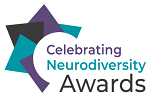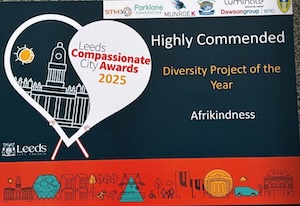The following findings are from a research study carried out by Afrikindness Research associate.
For more information, please contact us via our email at research@afrikindness.org
by Dr Vivian Okoye
Nov 2, 2023

Disparities in Autism Diagnosis
Autism, a neurological condition affecting individuals regardless of their racial background, continues to be a topic of concern due to the disparities in diagnosis and access to care among various racial communities.
- In the United Kingdom, a significant gap exists in the timing of autism diagnoses between Black children and their white counterparts (Madell 2006). This issue sheds light on the need for comprehensive research to understand and rectify the barriers faced by Black parents in obtaining timely autism diagnoses for their children.
- Research has shown that Black children often experience a prolonged delay of approximately three years from the initial concerns raised by their parents to the point of receiving a formal autism diagnosis.
This delay is particularly pronounced among children from lower-income families, ethnic or racial minority backgrounds, and rural communities (Aylward,2021).
Surprisingly, there has been a lack of comprehensive research focusing on the challenges Black parents encounter when seeking autism diagnoses for their children in the UK.
Finding: Barriers to Timely Diagnosis
- In a recent research, Dr. Vivian Okoye explored the barriers faced by Black African parents in accessing timely autism diagnoses in the UK.
- One of the significant barriers highlighted in the study is the lack of awareness among parents. Many Black African parents had no prior knowledge of Autism until their child’s symptoms became evident. Some parents reported holding mistaken beliefs, such as associating Autism solely with physical disabilities or assuming that behavioral signs were reflections of stubbornness or a lack of discipline in their child. This lack of awareness often resulted in a delay in recognizing the signs and symptoms associated with Autism, making it harder for parents to seek a timely diagnosis.
- Another prominent challenge is the limited awareness of available autism-related services and resources. Parents expressed difficulties accessing information about the diagnostic process, support services, and available resources. This lack of awareness created uncertainty and challenges in navigating the healthcare system, ultimately leading to delays in seeking a diagnosis and appropriate interventions for their children.
- Cultural and religious beliefs also significantly influenced how parents responded to their child’s autism symptoms. Parents narrated an initial resistance or denial to atypical behaviors, a response they opined was rooted in their cultural and religious beliefs. Others expressed skepticism when encouraged by schools to seek a diagnosis and support. They report that this skepticism stems from common biases and misinformation in Black African communities about the motives of service providers.
- Nearly all parents reported extended waiting periods when seeking an autism diagnosis for their children. Extensive waiting time was a significant hindrance, causing delays in obtaining necessary assessments and interventions. This waiting time added to the parents’ anxiety and stress and prolonged the period before their children could receive the appropriate support and services.
Many parents in hindsight, recount that more information and education on autism and available support could have helped them get timely diagnoses for their children.
Need for Community-Led Initiatives
The study’s findings underscore the urgent need for community-led initiatives offering tailored autism awareness programs and institutional adjustments to provide improved autism services for the Black African community.
We must break down the barriers that hinder timely diagnosis and care to ensure that every child, regardless of their economic or racial background, receives the support they need to thrive.
Addressing the disparities in autism diagnosis and care is a matter of social justice and a fundamental step toward creating an inclusive and equitable healthcare system.
Let us work collectively to bridge the gap and ensure that autism is recognized and supported in every community.
Dr Vivian Okoye,
Afrikindness Research Associate.
The research study is on ‘Exploring barriers to accessing diagnosis by Black African Parents of Autistic Children in the UK’ by Dr Vivian Okoye, Newcastle University.







Dr. Vivian Okoye’s research brings vital attention to the critical disparities faced by Black African Parents in obtaining timely autism diagnoses. These insights are not just findings; they’re a call to action for inclusive healthcare and a testament to the need for community-led initiatives. Kudos to Dr. Okoye for shedding light on this crucial matter! #morestudy #calltoaction
Great article. Thank you Dr Vivian.